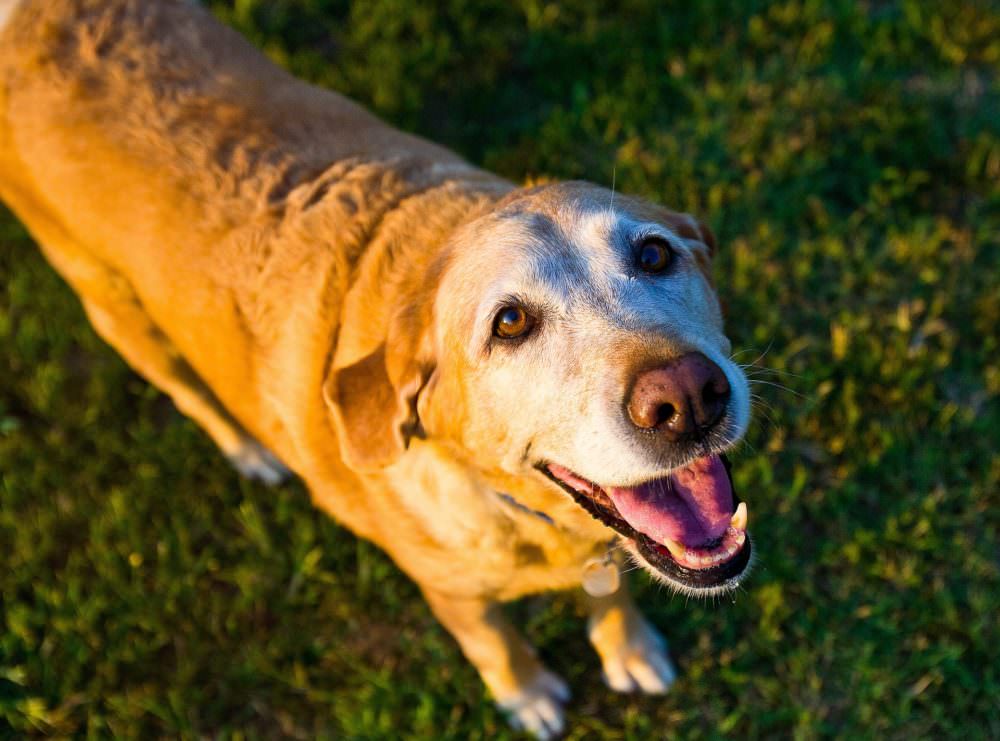As our society ages and Baby Boomers reach their senior years, everyone is more likely to be touched by Alzheimer’s disease. It seems like everyone knows someone who has been affected by this diagnosis, whether it is a friend or a family member or just someone they know.
According to alz.org, Alzheimer’s disease and other dementia affect 1 in 3 human seniors. Our dogs age faster than we do and many people with senior dogs wonder if their dogs can be affected. Of course, the cause in any species is complicated. The actual signs of dementia are related to progressive brain cell failure, but the reason for the cell failure is multi-factorial. Senior dogs can suffer from similar signs as human beings diagnosed with Alzheimer’s disease. In fact, the pathologic changes in the brain are comparable, but it is harder to document their impact in a non verbal species1. We cannot ask our dogs questions to assess their memory.

For dogs, this disorder has been termed Canine Cognitive Dysfunction Syndrome (CDS). Dogs suffering from CDS may seem to gradually decline, experiencing disorientation, altered social interactions and changes to sleep patterns.
Not all dogs experience the changes linked to CDS, but up to 74% of dogs may be affected 2. The older dogs get the more likely they will experience signs of CDS with more than 40% of dogs over the age of 14 years showing signs 3. In affected dogs, there is a fairly rapid progression moving from mild impairment to moderate impairment over a 6 month time period 2.
The most commonly reported issues for dogs over 7 years are aggression, barking, separation anxiety, house soiling, destructive behavior, excessive daytime sleeping and noise fears 4. Signs can be subtle at first and dog owners often fail to realize that there are treatments. Early intervention can improvement outcomes and slow the deterioration.

Certainly cognitive decline has been documented in canine patients and there are treatment options. There are special diets designed to keep minds bright and certain dietary supplements, like omega 3 fatty acids and fish oils that have shown promise in slowing the progression of dementia in dogs.
If your senior dog seems to sleep too much, act fearful, disoriented or aggressive, please ask your veterinarian for help. Although this issue is not called Alzheimer’s disease in dogs, cognitive decline is a very real issue for senior dogs and it can be helped. Let your vet help you keep your dog’s golden years shining!
- Youssef SA, Capucchio MT, Rofina JE, Chambers JK, Uchida K, Nakayama H, Head E.Pathology of the Aging Brain in Domestic and Laboratory Animals, and Animal Models of Human Neurodegenerative Diseases. Vet Pathol. 2016 Mar;53(2):327-48. doi: 10.1177/0300985815623997. Epub 2016 Feb 11. Review. PubMed PMID: 26869150.
- Madari A, Farbakova J, Katina S et al. Assessment of severity and progression of canine cognitive dysfunction syndrome using the Canine Dementia Scale (CADES). Appl Anim Behav Sci 2015; 17, 138-45
- Salvin HE et al. Under diagnosis of canine cognitive dysfunction; a cross-sectional survey of older companion dogs. Vet J 2010; 184, 277-81
- Mariotti VM, Landucci M, Lippi I et al. Epidemiological study of behavioural disorders in elderly dogs. Abstract. In: Heath, S (ed). Proceedings 7th International Meeting of Veterinary Behaviour Medicine, ESVCE Belgium, 2009; 241-243
